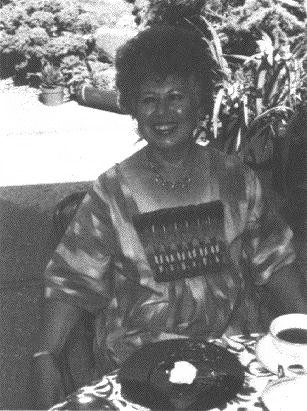| Profile | Major Works | Resources |
Irma Adelman, 1930-2017.

Irma Adelman was born in Czernwotz, Romania, to a Jewish family. The
family moved to British Palestine in 1939, subsequently Israel after
1948, where Irma would complete her school education. She emigrated to
the United States to enroll at the University of California Berkeley,
where she would obtain her BA in 1950 an eventually her Ph.D in 1955,
with a thesis on Walras's monetary theory.
As a woman, Irma Adelman had difficulties securing a permanent position, and would hold a series on temporary appointments at Berkeley and Stanford. During this time, she published several seminal works, .e.g. on the Klein-Goldberger model confirming the shock-based cycle hypothesis of Frisch (1959), computation of indexes using hedonic pricing (with Griliches, 1959) and her theoretical book on economic growth (1961). In 1962, Adelman obtained a permanent position at the Johns Hopkins University in Baltimore. It was during this period that she began her work in economic development, and was a frequent consultant used by the the USAID in Washington DC. She served as an important consultant for the South Korean government's development plane from 1965.
It was during her period there that Adelman initiated her long collaboration with Cythia Taft Morris, and began her work on large scale econometric models, bringing factor analysis into economics.
Adelman moved to Chicago in 1966 to take up a position at Northwestern. It was here that Adelman initiated her long collaboration with Cynthia Taft Morris, and began her work on large scale econometric models, bringing factor analysis into economics. She also went on to pioneer the construction of computational general equilibrium models. However, her work as a development economists drove her back to Washington, initially at the World Bank in 1971, then at the University of Maryland from 1972.
Adelman returned to her alma mater, UC Berkeley, in 1979, initially at the Department of Agricultural Economics. She remains at Berkeley to this day.
|
Major Works of Irma Adelman
|
|
HET
|
|
Resources on Irma Adelman
|
All rights reserved, Gonšalo L. Fonseca
